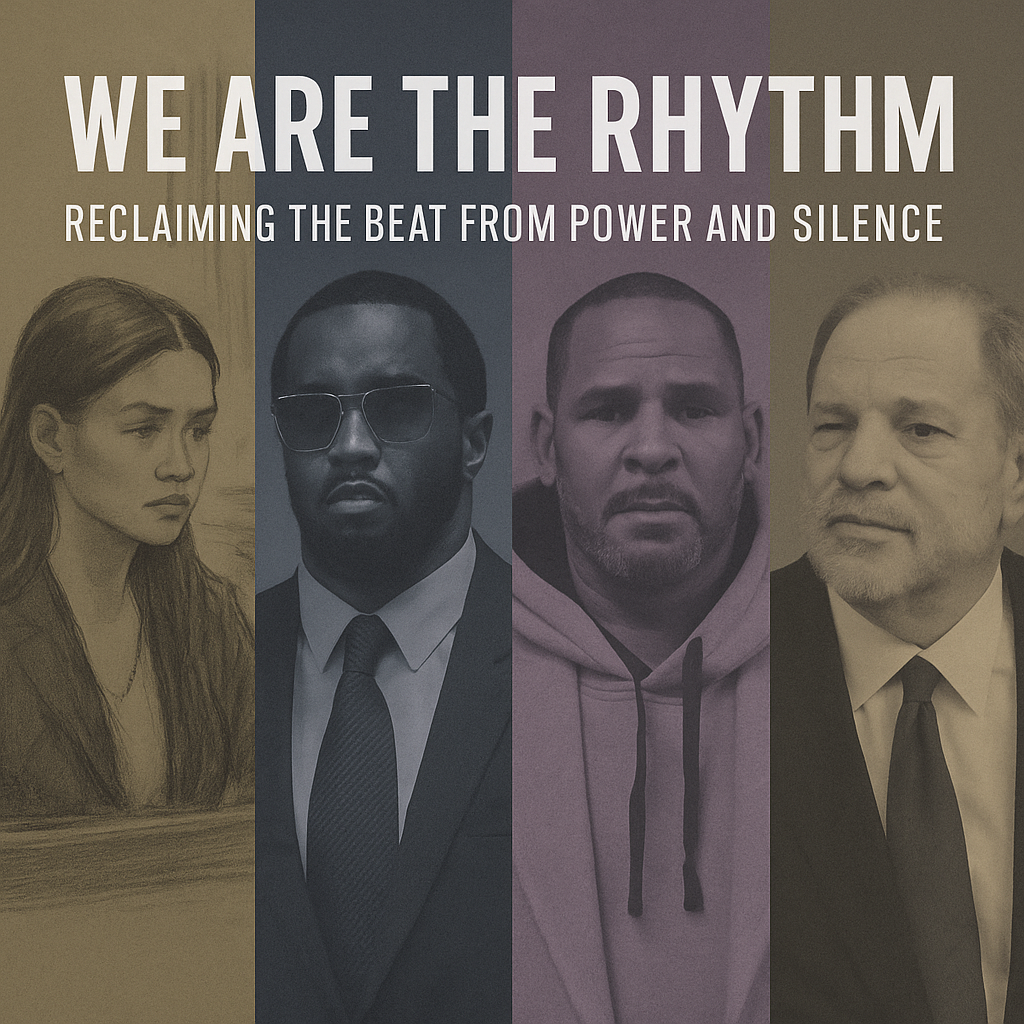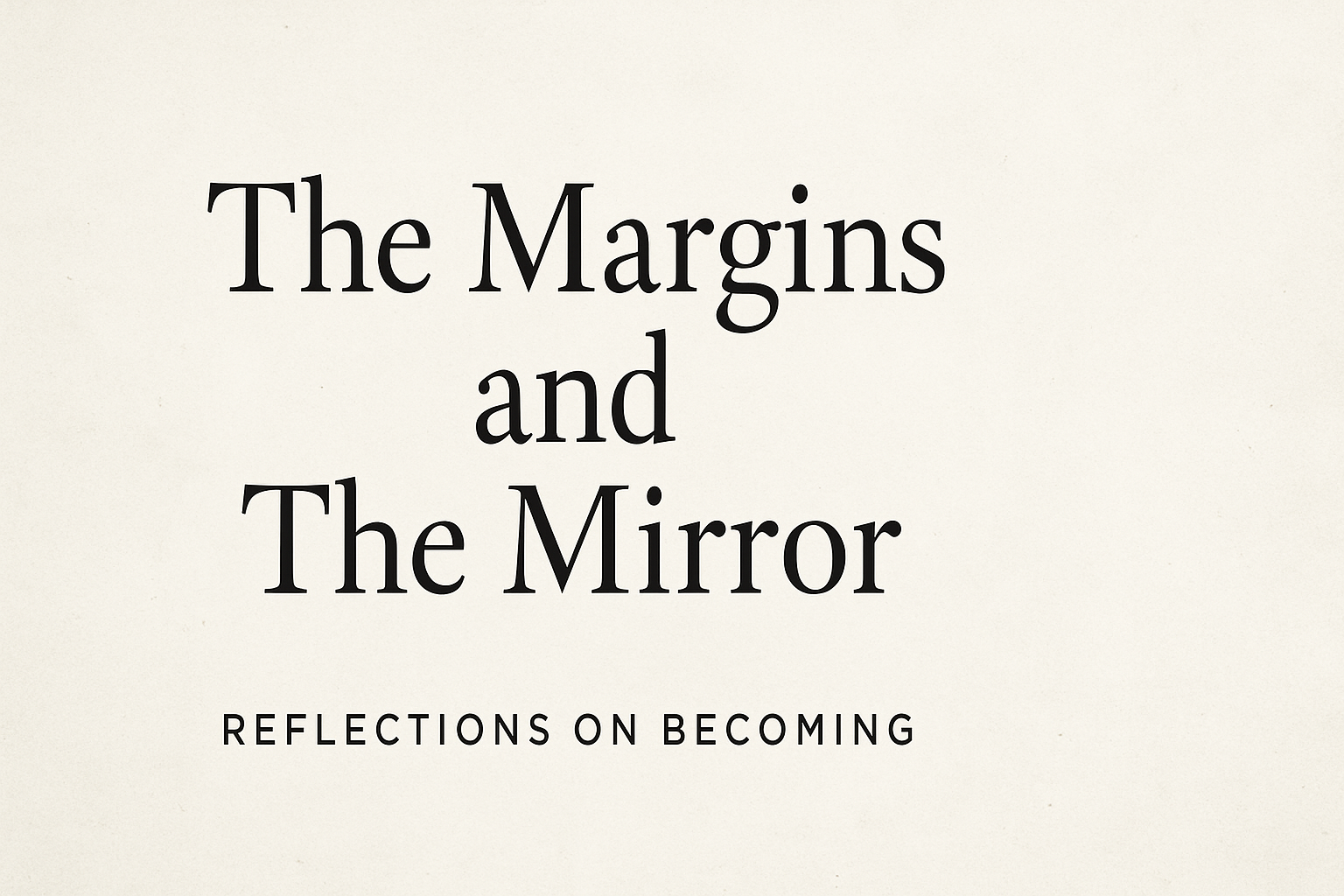When the Music Stops

I have a confession.
I’ve danced to Diddy’s music.
Rapped in syncopated rhythm to his lyrics.
Sang along with the swagger, the confidence, the power he exuded in every beat.
But the music has stopped—for me. And, apparently, for now, for him as well.
I’m not here to chant about takedowns or toppled icons.
I’m not looking to shout about patriarchy’s boots or the broken spine of womanhood—though those things are real, and they matter.
What I want—what I hope—is more human and more radical than rage.
I want the truth. All of it.
In facts, nuance, contradiction, and the kind of interrogation that makes us uncomfortable—one that forces us to reconcile who we want to be with who we are, as a culture and as a people.
I want justice—not as spectacle, but as restoration.
Not just for Cassie Ventura, but for every woman who said yes when she meant no, who stayed silent to stay safe, who once mistook pressure for passion.
Regardless of how this trial ends, I’ve already made my choice:
I no longer lend my rhythm to men who confuse desire with domination.
What I hope—truly hope—is that men become what they were meant to be:
Protectors of life.
Keepers of dignity.
Lovers of women in the deepest, clearest, most sacred way.
Not to possess.
Not to exploit.
But to honor.
Because real power isn’t in the beat.
It’s in restraint.
In reverence.
In love that never coerces.
Me Too was not a myth.
It wasn’t an aberration.
It was a reckoning long overdue.
It was—and still is—the collective experience of women across time and culture.
From whispered warnings in dressing rooms to HR complaints buried in folders, from uncomfortable laughs at unwanted comments to the unspeakable trauma of assault.
The movement didn’t “go too far.”
It didn’t “ruin men’s lives.”
If anything, it revealed how few were ever truly held accountable.
Because even in the roar of millions of women and girls—testifying to harm, manipulation, abuse—what we saw was this:
The world heard us. And still looked away.
And so we write. We speak. We keep naming it.
Because Me Too wasn’t a moment. It was memory. And for many—it’s still the present.
Harvey Weinstein was not an outlier—he was the embodiment of a system.
A system that rewards power, silences women, and disguises predation as mentorship.
And across the ocean, a man convicted of repeatedly raping his wife was not sentenced to prison.
The court cited his “status” and “family role” as mitigating factors—as if power redeems the crime.
These aren’t isolated. They’re patterned.
And then there’s R. Kelly.
His depravity wasn’t hidden. It was public. Documented. Known.
But we sang anyway.
We danced. We clapped.
We stepped in the name of love.
Until the truth—long whispered—finally screamed loud enough to pierce the beat.
His music, like his power, became a tool of manipulation.
His celebrity wasn’t a backdrop. It was a weapon. A shield. A seduction. A reason the world looked away.
He wasn’t held up despite the abuse. He was held up because we prioritized talent over truth, hits over harm, and spectacle over the sacredness of girls and women.
And so, for me, the music has stopped.
I can no longer heed the call to step in the name of love when love was never what fueled the rhythm.
Control was. And complicity. And our collective silence.
But no more.
And what about the anthems?
Those like “Bad, bad, bad boy… you make me feel so good.”
Once, it felt like flirtation. An invitation. A catchy club refrain.
But now it feels like a quiet scream beneath the beat—a backup singer’s chorus doubling as a confession.
Was that line a peek inside the club—or the cage?
Because so many women were told they were lucky to be chosen. That pleasure was theirs too. That the excess was equal.
But behind the velvet ropes was a velvet trap.
What looked like indulgence was often manipulation.
What looked like seduction was often scripted.
And what looked like freedom was, for many women, a carefully curated form of submission.
The club wasn’t always a playground.
Sometimes, it was a stage for trauma—lit by strobe lights, fueled by silence, and applauded by the crowd.
I once moved to someone else’s rhythm. But the beat no longer holds me.
There is a silence now—
But in that silence, I hear myself.
Truth doesn’t shout.
It settles in the bones.
It waits to be honored.
Love is not pressure.
Real power never needs to demand.
I choose a rhythm that honors a woman's worth—
Not one that drowns it out.
And as for the refrain—the one Diddy sang and bopped to:
“I thought I told you that we won’t stop…”
We return that line now.
Not as a chant of domination, but as a promise.
We won’t stop—fighting for truth.
Demanding accountability.
Refusing to confuse fame with freedom from consequence.
Honoring the fullness of our humanity.
We won’t stop.
Because we were never just muses or backup dancers to someone else’s power trip.
We are the rhythm. We are the pulse. We are the voice that refuses to be silenced—ever again.
This essay is part of the Woman Enough series by Robin Emmons, published through The Margins and The Mirror, a space exploring culture, identity, politics, technology, and the emotional landscape of our time. No topic is off-limits. Just like the world, we are multifaceted.
If this resonated with you:
Join me in the Woman Enough series as we continue to reclaim our stories, challenge the silence, and speak collective truth.
🔗 Subscribe to The Margins and The Mirror for more Or share this post to spark a courageous conversation.

